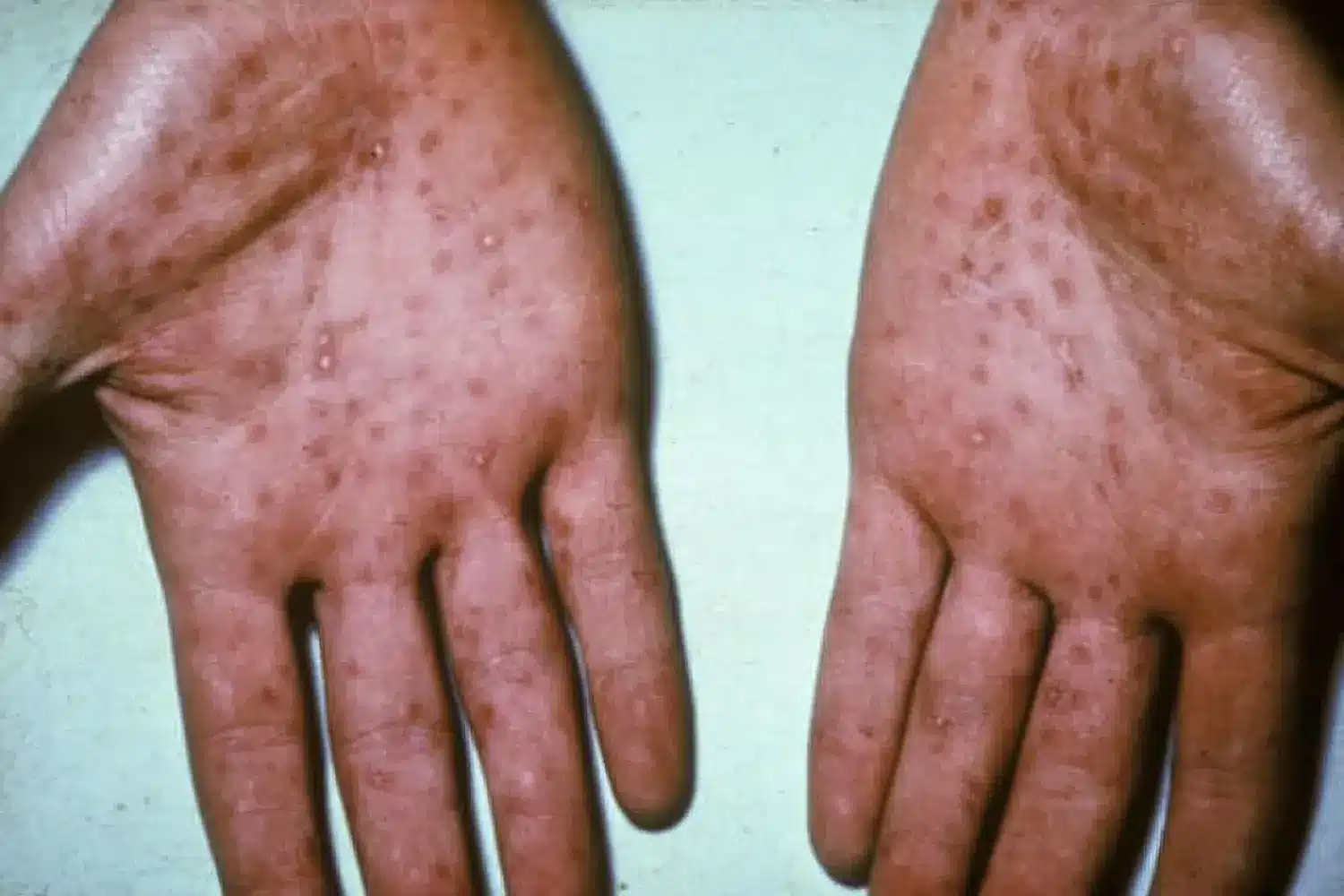About Syphilis:
- It is a sexually transmitted infection (STI) that can cause serious health problems if you do not treat it.
- It is caused by the bacteria, Treponema pallidum.
- After the infection happens, syphilis bacteria can stay in the body for many years without causing symptoms. But the infection can become active again.
- Transmission:
- People usually get syphilis from sexual contact with someone who has it.
- It can also pass from mother to baby during pregnancy, childbirth, and sometimes through breastfeeding.
- Symptoms:
- Syphilis develops in stages. The symptoms vary with each stage and is of ten painless.
- The disease starts as a sore that’s often painless and typically appears on the genitals, rectum, or mouth.
- Sometimes it causes swelling in nearby lymph nodes.
- If you do not treat it, syphilis usually causes a non-itchy skin rash, often on your hands and feet.
- Many people do not notice symptoms for years. Symptoms can go away and come back.
- If left untreated, it can cause serious health issues. It can permanently damage your heart, brain, muscles, bones, and eyes.
- Treatment:
- Syphilis is treatable and curable. It is easy to cure with antibiotics, especially during in the early stages.
- Penicillin is the most commonly used medication for syphilis.
Q1: What is HIV/AIDS?
Acquired immunodeficiency syndrome (AIDS) is a chronic, potentially life-threatening condition caused by the human immunodeficiency virus (HIV). HIV attacks the body’s immune system, making a person more vulnerable to other infections and diseases. If HIV is not treated, it can lead to AIDS. It is a sexually transmitted infection (STI). It can also be spread by contact with infected blood, and from illicit injection drug use, or sharing needles. It can also be spread from mother to child during pregnancy, childbirth, or breastfeeding. There is currently no effective cure. Once people get HIV, they have it for life. But with proper medical care, HIV can be controlled.
Source: Higher syphilis cases detected in Mumbai with increased testing
Last updated on June, 2025
→ UPSC Notification 2025 was released on 22nd January 2025.
→ UPSC Prelims Result 2025 is out now for the CSE held on 25 May 2025.
→ UPSC Prelims Question Paper 2025 and Unofficial Prelims Answer Key 2025 are available now.
→ UPSC Calendar 2026 is released on 15th May, 2025.
→ The UPSC Vacancy 2025 were released 1129, out of which 979 were for UPSC CSE and remaining 150 are for UPSC IFoS.
→ UPSC Mains 2025 will be conducted on 22nd August 2025.
→ UPSC Prelims 2026 will be conducted on 24th May, 2026 & UPSC Mains 2026 will be conducted on 21st August 2026.
→ The UPSC Selection Process is of 3 stages-Prelims, Mains and Interview.
→ UPSC Result 2024 is released with latest UPSC Marksheet 2024. Check Now!
→ UPSC Toppers List 2024 is released now. Shakti Dubey is UPSC AIR 1 2024 Topper.
→ Also check Best IAS Coaching in Delhi
























